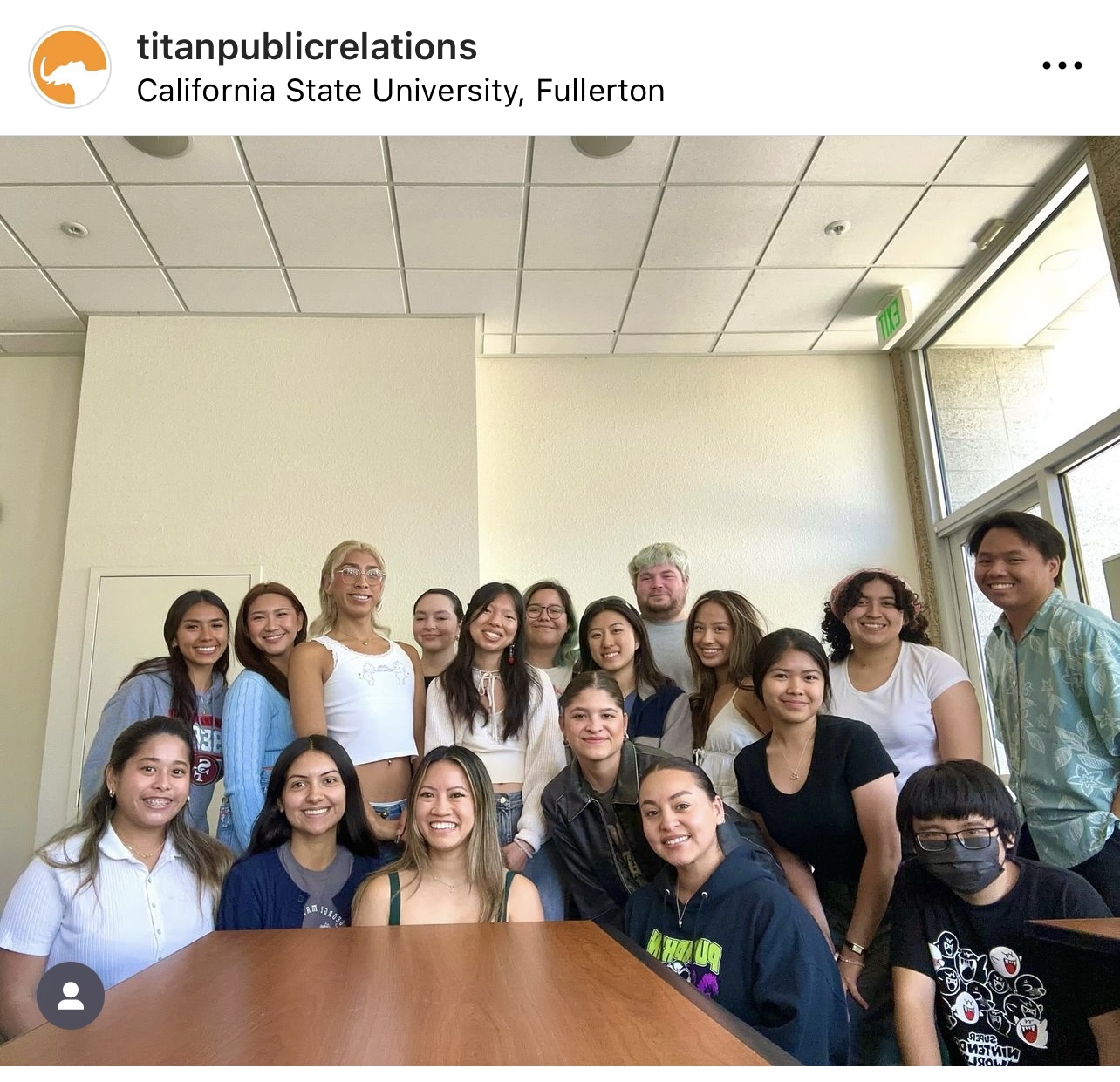Networking 101: How to Build Professional Connections in College

Networking is one of the most powerful tools for building a successful career, especially during your college years. As students, we often hear about the importance of networking, but the process can feel intimidating, especially if you’re not sure where to start. However, networking doesn’t have to be a formal, stiff interaction; it can be as simple as having a conversation with someone who shares your interests.
Whether you’re aiming for a career in public relations, marketing, or any other field, building connections during college can open doors for internships, job opportunities, and professional mentorship. Here are a few practical tips that have helped me, as well as others, successfully build meaningful connections.
1. Get Involved in Campus Organizations
One of the easiest ways to meet people who share your passions is by joining student organizations and clubs. As a member of PRSSA and TPR, I’ve been able to not only meet peers with similar career goals but also engage with industry professionals who attend as guest speakers. These organizations provide a platform to learn from those with experience and to connect with students who could one day be colleagues or collaborators.
Treat your involvement in these organizations as if you were already in a professional environment. Be reliable, engage actively, and show your dedication—these qualities leave a lasting impression.
2. Attend Industry Events and Workshops
Most schools offer industry-related events, guest lectures, and workshops. Whether it’s a guest speaker from the PR world or a resume-building workshop, these events give yo
u an opportunity to network in a low-pressure environment. Don’t hesitate to introduce yourself to the speakers or other attendees. A simple question about their presentation or experience can spark a longer conversation and even lead to a future connection.
If you’re unsure of what to say, a good rule of thumb is to express genuine interest in their work and ask open-ended questions. You can say something like, “I really enjoyed your talk about crisis management in PR. How did you first get involved in that field?”
3. Utilize LinkedIn
LinkedIn is an invaluable tool for professional networking. Start by creating or updating your profile to showcase your academic achievements, extracurricular activities, and any relevant work experience. Connect with classmates, professors, and industry professionals you meet through internships, campus events, or networking mixers. Don't be afraid to reach out to someone with a short, personalized message expressing your interest in their work or asking for advice.
For example, after meeting a speaker at a campus event, you could send them a LinkedIn message saying, “Hi [Name], I really enjoyed your presentation on media relations at the PRSSA event last week. I’d love to connect and continue learning from your experiences in the industry.”
4. Leverage Your Professors and Mentors
Professors aren’t just there to teach you—they can also be powerful networking resources. Many have years of experience in their respective fields and are connected with professionals in various industries. Don’t be afraid to reach out to your professors for advice on internships, career paths, or even to ask for introductions to industry contacts. Building a strong relationship with them can also lead to future recommendations or references.
Additionally, if your school offers a mentorship program, consider participating. A mentor can provide you with guidance, introduce you to key people in your field, and even help you navigate the challenges of building your career.
5. Volunteer and Intern
Volunteering and internships are fantastic ways to not only gain experience but also meet professionals who are already working in your field of interest. I had the opportunity to volunteer at Fountain Valley Hospital, where I gained insight into the healthcare sector and built connections with both staff and other volunteers. These experiences not only help you build your resume but also offer a chance to prove yourself and build lasting relationships with professionals who could offer future opportunities.
6. Follow Up and Stay Connected
One of the most important yet often overlooked parts of networking is following up. After meeting someone at an event or connecting with a professor or professional, make sure to follow up with a thank-you email or message. Let them know you appreciated their time and are interested in staying in touch. This small gesture can leave a strong, positive impression.
Staying connected doesn’t mean constantly checking in, but you should make an effort to maintain your relationships over time. Comment on their LinkedIn posts, send them a quick message if you see something that might interest them, or simply wish them well on career milestones. These small touches help keep the connection alive.
7. Don’t Be Afraid to Put Yourself Out There
Networking can sometimes feel daunting, especially if you’re more introverted or new to the process. However, the more you practice, the easier it becomes. Start small, by attending events or reaching out to people in your immediate circle. As you grow more comfortable, expand your network by attending larger events or engaging with professionals on platforms like LinkedIn. Remember, everyone was once in your shoes, so don’t be afraid to ask questions, seek advice, and build connections.
Building a network in college is one of the best investments you can make in your future career. Whether through student organizations, industry events, or internships, take advantage of the opportunities to meet people, learn from them, and form meaningful connections. Networking is not just about who you know, but how you engage and maintain those relationships over time. So put yourself out there, stay authentic, and embrace the journey!


Hello Bryanna, this blog was a great read and gave so many useful tips that I really needed! Thank you for the help!
ReplyDeleteI'd like to this succinct listicle. When networking, be mindful as the connections you could make could last a long time, including a lifetime.
ReplyDelete